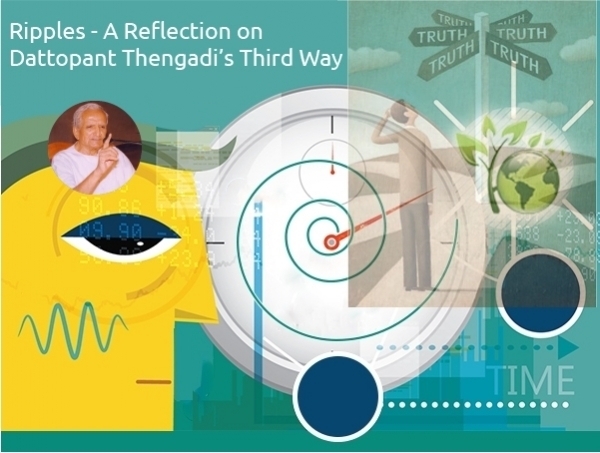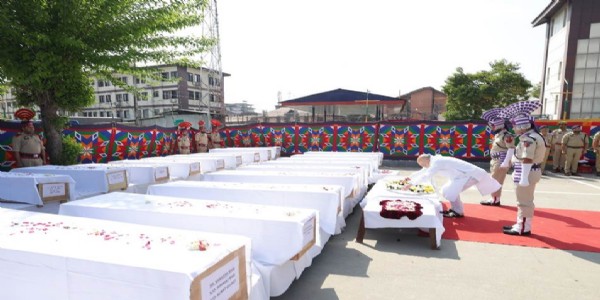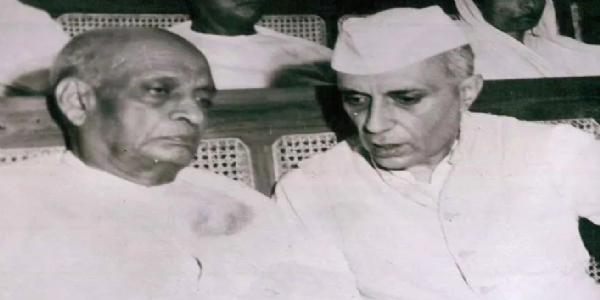Ripples : A Reflection On Dattopant Thengadi's Third Way - Part 11
No non-Hindu language has the substitute word for the concept of "Dharm" that can describe all the implications of the concept, Dattopant states clearly.
Total Views | 105
I have been reflecting in my own way on Dattopant Thengadi Ji's Third Way. I present these small "ripples" that it has caused in my mind in a series. I am glad it has found its resonance in many thinking minds alike. I hope the readers have read the earlier article in the series before moving ahead.

Part 3 of Quo Vadis
Any socio-economic order has to change with the changing times and climes. How is change accommodated in Hindu order? Dattopant refers to shri Yogi Arobindo to explain the process. It is not a revolutionary or destructive in nature. It comes from within where some groups, communities, or families exercise their freedom to change the achar ( practice) and introduce the modification or a new element without disturbing the basic structure.
The needs and the challanges before any society change consistently. The details may change but the eternal laws of universe (Sanatan Dharm)that hold any society don't change. These are the guiding principles or the permanent points of reference. This may be described as a Hindu way of dealing with the 'fresh challanges'.
No non-Hindu language has the substitute word for the concept of 'Dharm' that can describe all the implications of the concept, Dattopant states clearly.
Dattopant makes clear the difference between Western and Hindu way of dealing with challanges or guiding the society and helping it evolve ever changing socio-economic order. In the western world many theories or isms are developed. On the basis of them social models get designed. If they work in practice, they are accepted to be true or relevant or meaningful.
If they don't work ,some other model is to be developed.( The reference to Dewey's theory)
On the contrary Hindu philosophy has the luxury of refering to the principles of sanatana Dharma. The timely actions and construction of new patterns are to be laid down. These description and narrations are called Smritis. The sanatana Dharma works like the basic structure, a workman uses scaffolds of Smritis to build or repair or change the details. Thus there was no need of social theories or ideologies or isms. There were 'Darshanas'. As western world had no luxury to turn to the universal laws for guidance, theories and ideologies were to be presented. They had to tested whether they 'work' in the scenario of their requirements. Such experiments in socio-economic orders take many decades or centuries to reach the stage of finding whether they work. Limitations of capitalism or socialism are the best examples of such social experiments.
Intellectuals think this is the only method that works.
Hindu way of renaissance is different where society preserves the systems or patterns that work for the welfare of the progressive society. Those which outlive their utility make way to fresh growth. ( As elaborated by Shri Guruji)
In this process the leaders with 'lofty character and sublime deeds and burning enthusiasm impart idealism to masses'. Thus new paths are opened. (As described by Shri Subramaniam Iyer, one of the pioneers of social reforms)
Bharati Web








